
The Strategists
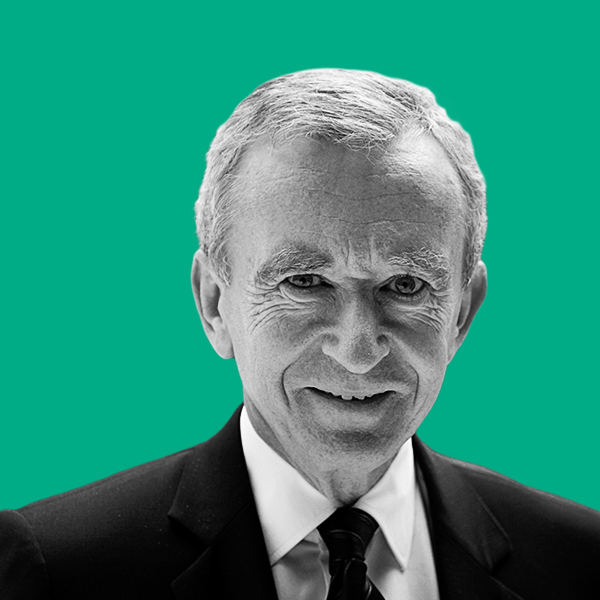
Bernard Arnault
Founder, chair and chief executive, LVMH
Bernard Arnault has steered luxury behemoth LVMH – owner of brands such as Louis Vuitton and Moët Hennessy – to brush off the downturn in the international economy.
Its six-pillar strategy distinguishes Arnault and has seen sales at LVMH soar. The strategy includes ensuring its brands are decentralised, investing in vertical integration, balancing business activity across geographies, focusing on product craftsmanship to ensure “savoir-faire”, sharing resources across the group, and a commitment to investing the majority of resources into its people.
It reported revenue of €42.2bn (£36.1bn) in its first half of the full 2023 financial year, up 15% year on year from €36.7bn (£31.4bn) for the same period in 2022. Growth has been supported by investment in key markets in Europe and Asia, while its fashion and leather goods in particular contributed to performance with sales up 20%.
These results have contributed a nice sum to Arnault’s personal fortune – up $51bn so far in 2023, hitting $213bn in August, according to Forbes’ Real-Time Billionaires List.
He sits in second place behind Tesla founder Elon Musk on the list of the world’s richest people; Amazon founder Jeff Bezos is at number three.
Indeed, under Arnault’s leadership, LVMH has shrugged off those who worried that even the world’s ultra-wealthy consumers might reach a cost-of-living tipping point.

James Bailey
Executive director, Waitrose
The cost-of-living crisis has impacted every retailer in one way or another, and upmarket grocer Waitrose has been no exception. This past year, James Bailey has navigated the retailer through some tough trading conditions. At its most recent update, Waitrose sales declined 3% to £7.31bn and it struggled with product supply. The retailer also had to take a write-down in exceptional costs relating to the value of Waitrose stores.
Despite its struggles, Bailey has overseen the investment of more than £100m in June into slashing prices on more than 200 of its own-brand products – making them up to 10% cheaper – to better compete with rival supermarkets and meet customer demand.
He has also been looking into more innovative ways of righting the ship to pursue his strategy of ‘spending more time with consumers’ – with in-store experiences and store optimisation key focuses to achieving this. For instance, in April, Bailey announced that Waitrose would be adding Gail’s bakery sections to 64 stores across the south and east of England by May.
With JLP having welcomed its first-ever chief executive six months ago, Bailey is no doubt working closely with Nish Kankiwala to lead Waitrose’s turnaround.

Alex Baldock
Chief executive, Currys
Currys boss Alex Baldock has steered through what has been a tough 12 months for the business and the wider electricals and tech sector.
For the full year to April 29, 2023, Currys reported profit before tax of £119m, down 38% year on year due to issues in the Nordics and “normalisation of tech spend” from customers following the pandemic boom.
Baldock has been pushing on with his transformation plan to turn things around, which focuses on the online offer and credit initiatives, and more recently addresses the rising cost of living. This past year, he has increased shopper buy-in to services, overseen greater adoption of Currys’ credit offer, launched a scheme to support those in digital poverty and maximised on customer data to better inform promotions.
Currys also launched a trial selling refurbished electricals and devices in February to offer customers cheaper and more sustainable tech options.
Yet, for all of Baldock’s strategic capabilities, trading in the Nordics presents a major challenge. Traditionally a strong, growing market, conditions have taken a toll and Currys’ EBIT in the Nordics has plummeted by 82% year on year to £26m.
Stopping the slump in trading could be Baldock’s biggest leadership test yet.
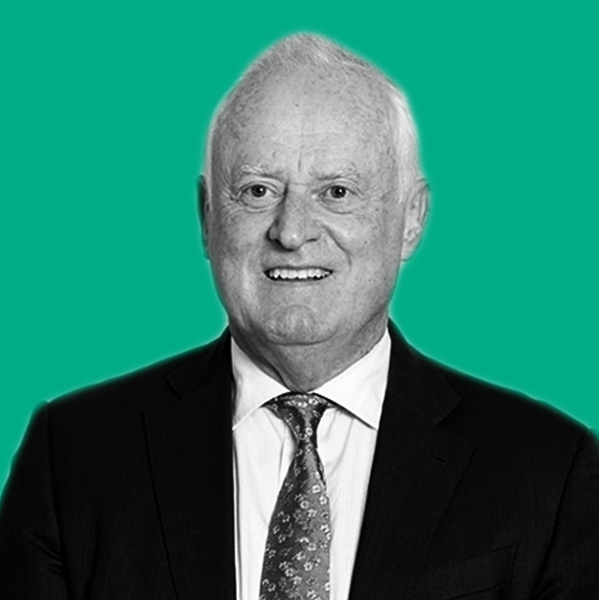
John Bason
Finance director, Associated British Foods
A stalwart of Primark owner Associated British Foods (ABF) for more than 23 years, finance director John Bason was the clear leader when it was decided that the creation of a new strategic advisory board was the best course of action to propel the fashion giant to new heights.
Instead of retiring, Bason will now sit at the head of the new board tasked with supporting Primark CEO Paul Marchant and his team. This comes as they “examine the opportunities to develop and grow the business” and accelerate expansion into new channels and regions.
ABF chief George Weston describes Bason’s contribution to the business as “wide-ranging and exceptional” and says he is delighted that his wisdom will now be available to Primark – a business Bason knows very well. With its aggressive US expansion under way, click and collect being tested and an ever-growing list of sustainability initiatives to roll out, Bason is a key player shaping Primark’s future.

Katie Bickerstaffe
Co-chief executive, Marks & Spencer
One half of Marks & Spencer’s top leadership structure, Katie Bickerstaffe has been at the heart of the venerable UK retailer’s resurgence over the past few years.
While fellow chief executive Stuart Machin focused more on the M&S Food division in his former role as Food managing director, Bickerstaffe was focused on getting the fashion and digital businesses moving with purpose again.
Coming together to head up the executive team, they outlined the M&S ‘reshaping for growth’ strategy at the end of 2022, which, among other pillars, includes focusing on more exceptional products and creating a compelling customer ecosystem.
Partnerships are key to achieving the latter and Bickerstaffe has overseen several in fashion this past year, launching a digital tie-up with Crew Clothing in March and an investment in The Sports Edit in February, and acquiring the intellectual property of specialist marketplace Thread last November to ramp up personalisation. In March, she pushed the brand agenda by overseeing the rollout of Nobody’s Child concessions in 30 UK stores.
In the year to August 12, 2023, like-for-like clothing and home sales were up by more than 6%, while food sales grew more than 11%.
Bickerstaffe has also been advocating for M&S’ flexible working culture, which, in turn, is shaping the future of the entire organisation.

John Boumphrey
UK country manager, Amazon
As the face of Amazon’s UK business, the largest ecommerce retailer by current and forecast sales, John Boumphrey has all eyes on him as he steers through a challenging period. The business has been impacted by currency fluctuations and the economic slowdown, with UK revenues falling from $31.9bn (£25bn) to $30.1bn (£23.6bn) in the year to December 31, 2022.
Boumphrey is investing to turn the tide. With Amazon UK named the Consumer Choice winner at the Retail Week Awards 2023 for the sixth consecutive year, the business is working to get even closer to consumers. In September, it partnered with Iceland to sell its food range on a trial basis and has also invested in two new state-of-the-art fulfilment centres (FCs) to increase its capacity. This includes a £450m FC in Wynyard Park, Stockton-on-Tees, which is expected to open in October.
While Boumphrey has had to navigate mounting unrest among warehouse staff with rolling strike action since the beginning of January, he has been taking steps to support staff and local communities. In May, Amazon UK offered warehouse workers with family commitments the chance to take term-time-only contracts, while Boumphrey has been driving Amazon’s Force for Good strategy. This includes working with The Felix Project to donate food waste to vulnerable families in London and announcing plans in June to fund 350 apprenticeships and traineeships in the creative industry.
Strategic store changes are also afoot. In April, Boumphrey closed UK-based online store Book Depository, which was acquired in 2011, while in July Amazon closed its first-ever checkout-free Just Walk Out store in London after two years of operation, along with two other Fresh stores in Wandsworth and East Sheen. However, this does not signify the end of Fresh, or indeed Amazon’s food ambitions, as Boumphrey is assessing the retailer’s UK store portfolio and plans to open new stores in the London area.

Helen Connolly
Chief executive,
New Look
Helen Connolly was promoted in June 2021 from New Look chief operating officer to the top job at a time when the high street fashion retailer was still on a rocky footing, going back to before the pandemic.
Still in the thick of a turnaround, Connolly has applied her fashion background (George womenswear director and Bonmarché chief executive) to ensure New Look is “absolutely focusing on profit all the time”.
To get the retailer back in the black, Connolly is making tough decisions; 70 head-office jobs were cut in March to support omnichannel growth and the business is mulling redundancies of more than 500 people at its lead distribution centre in Newcastle. Elsewhere, Connolly is trialling charging customers for online returns.
While she has a job on her hands, Connolly’s strategy to whip the business into shape could soon start to reap better rewards.

Carl Cowling
Chief executive, WHSmith
Awarded the esteemed title of Retail Leader of the Year at the 2023 Retail Week Awards, Carl Cowling has had an incredible 12 months at the helm of WHSmith, showing just what can be achieved with an effective strategy.
When global travel came to an abrupt halt during the pandemic, WHSmith landed in a tight spot, with the business swinging to a £69m loss for the year to August 2020 as its stores were shuttered. Though at the time no one knew when international travel would be back, Cowling ploughed on with his ambitious international growth agenda, which included a pipeline of store openings in North America.
WHSmith now operates in 32 countries and Cowling’s bold vision to move from convenience stores to one-stop shops for travel essentials has transformed the retailer’s fortunes. It posted full-year group profits of £45m to April 2023, up from £18m year on year, and a 41% rise in total group revenue to £859m.
Having launched its new regional souvenir and fashion-focused Curi.o.city in London Gatwick airport this year, Cowling has made it clear that travel is where WHSmith’s growth lies.
Indeed, despite its high street stores entering into new partnerships with Toys R Us and Virgin Wines, Cowling revealed in June that the business would not be opening any more high street branches to focus on travel instead. The sky really is the limit.

Will Crumbie
Chief executive,
Fat Face
Will Crumbie enters the Retail 100 having returned Fat Face to pre-pandemic profitability. Crumbie took the helm in September 2021, promoted from chief financial officer, and has steered the fashion retailer to growth.
Fat Face’s full-year financials (to May 28, 2022) reported record sales of £244.9m and profit before tax of £10.9m. It also finished the year with £10.4m net cash, compared with £10m net debt last year. Numbers remained strong for the five weeks to January 7, 2023, too, with a 34% increase in total year-on-year sales.
Crumbie’s focus on digital transformation and new partnerships are major factors in the turnaround. Ecommerce sales for the same period were up 26%, while Crumbie has credited 2022 tie-ups with Next and Marks & Spencer as improving underlying EBITDA.
International expansion is now Crumbie’s top priority. Following the retailer’s successful expansion in the US, Fat Face made its debut in Canada in June with three store openings in Ontario. Crumbie intends to open a further six Canadian stores by the end of the year.

Brian Duffy
Chief executive,
Watches of Switzerland
Having posted a “record” year of revenue and profitability, Watches of Switzerland (WoS) boss Brian Duffy debuts in the Retail 100 with the luxury watch retailer on track for further growth in 2024.
The business reported a 25% increase in group revenue to £1.5bn for the full year to April 20, 2023, with EBITDA up 24% to £201m. And Duffy, nine years in tenure, has announced WoS is entering FY2024 “ahead of where we want to be”. Investment in bricks and mortar is central to Duffy’s strategy with its latest performance credited to the expansion of its showroom network, alongside store refurbishments.
In 2022 the retailer opened 20 showrooms, 10 of which were in the UK and included its multi-brand Battersea Power Station space. Stores remain a strategic priority with Duffy now overseeing “an exciting schedule of new showroom projects”. This includes 20 mono-brand boutiques – stores created in conjunction with a sole brand partner, such as Omega – across the UK, US and Europe.

Hannah Gibson
Chief executive,
Ocado Retail
Hannah Gibson was promoted to chief executive in September, coming into the top job at a challenging time at Ocado Retail, the online supermarket joint venture with Marks & Spencer. Between the end of pandemic lockdowns and the cost-of-living crisis, the ecommerce food boom has begun to peter out.
However, unlike her predecessor, Melanie Smith, who came into Ocado as an outsider, Gibson has been with the business for a decade and knows its inner workings.
Gibson has helped Ocado Retail achieve sales growth and attract new customers. For the quarter to May 28, 2023, the grocer’s revenue increased 5% year on year to reach £1.18bn. It posted a “small loss” of £2.5m during the first half despite EBITDA remaining positive throughout its second quarter.
Much of this comes down to Gibson pushing the brand to invest heavily in its Price Promise, while continuing to offer one of the largest assortments in UK grocery.
With the grocer’s average basket value also up 1.5% for the second quarter, Gibson appears to have what it takes to keep up momentum.

Paul Hayes
Chief executive,
Seasalt
Despite the latest ONS statistics showing falls in discretionary spending, Seasalt boss Paul Hayes is achieving impressive growth regardless. For the full year to January 29, 2023, the Cornish fashion brand posted a 38% increase in turnover to £96.4m, up from £69.7m the previous year, and profit before tax of £6.5m, up from £2.4m.
Much of Hayes’ strategic attention has gone into improving omnichannel performance and strengthening its third-party relationships with marketplace partners Marks & Spencer, Next and Zalando. Hayes’ efforts to bridge the physical–digital divide are working; 27% of Seasalt’s online orders were fulfilled from stores during the period and revenue for its online business was up 8.2% year on year.
Next on Hayes’ agenda is a significant expansion of its womenswear offer, which has been brought to the fore under Hayes’ leadership, and growth of its resale platform with Reskinned, which launched in March.
Having strengthened his leadership in June – with its first chief information officer Mel Wilcox and Duncan Tennent as new director of strategic partnerships – Hayes is powering full steam ahead.

Andy Higginson
Chair, JD Sports
Andy Higginson’s 40-year business career includes three decades spent in senior executive roles across FMCG and retail, a six-year stint as chair of Morrisons, 14 years on the board of Tesco (four of which were spent as group strategy director) and five years as chair of N Brown.
His experience was welcomed at JD Sports when he was appointed chair in July 2022, after the sports and leisure retailer parted ways with longstanding chair Peter Cowgill to make its management structure more conventional and address “a number of regulatory issues”, which highlighted the need for more board-level oversight. Higginson’s arrival was followed by the news that the then Al-Futtaim retail president Régis Schultz would become chief executive at JD.
Schultz and Higginson are a dynamic duo. For the 52 weeks ending January 29, 2023, JD Sports reported record sales of £10.1bn, up from £8.5bn in 2022, and expects profits to reach £1bn this year.
Higginson and Schultz are now pursuing further expansion. In February, the business announced a target of 350 international store openings a year over the next five years, focusing on North America and Europe.

Maria Hollins
Chief executive,
Ann Summers
Maria Hollins was promoted from Ann Summers managing director to chief executive in July, having previously served as joint managing director at the lingerie retailer alongside Vanessa Gold since 2019. Following the death of executive chair Jacqueline Gold in March, Hollins’ role takes on new meaning as she will be relied upon to lead the business.
With more than 30 years’ industry experience, Hollins will be using her retail nous to progress the omnichannel strategy set in motion by Jacqueline Gold, which had started to pay dividends.
In January 2022, Ann Summers returned to profit and was able to exit the company voluntary arrangement it entered into with landlords in December 2020. The business reported a 7.6% rise in sales year on year, from £93.2m to £100.1m, for the 52 weeks to June 25, 2022. Gross profit for the period reached £60m, up from £50.9m in the previous full financial year, while operating profit was down from £3.5m to £1.2m.
Ann Summers credited the performance to a “well-executed” business strategy, which included extending its range of skin tones, launching its customer loyalty programme and opening new stores. Hollins is now building on growth, with plans to add four or five more stores to the portfolio next year.

Giles Hurley
Chief executive UK
and Ireland, Aldi
Now in his eighth year as boss of the UK’s fourth largest grocer, Giles Hurley is progressing an effective strategy at Aldi, which centres on stores and staff.
With more than 990 stores in the UK currently, Hurley is pursuing a “relentless” store development plan, investing more than £400m with a goal to open one new UK store every week by Christmas.
Hurley is prioritising staff to support this expansion; in August, Aldi announced it was recruiting 1,700 new staff across the UK by the end of the year, with salaries of up to £53,000. It follows Hurley leading on a pay raise for shopworkers in March, with base pay rising to £11.40 an hour, taking the grocer’s investment in pay over the past 12 months to more than £100m.
Hurley’s strategy will build on the discounter’s growth; sales in the UK and Ireland increased 0.8% to £13.6bn for the financial year to December 31, 2021 (FY2021), from £13.5bn the previous year.

Seb James
Chief executive, Boots
Boots boss Seb James took to the Retail Week Live stage in March to tell the audience that, in a turbulent environment, the power of taking on your competitors cannot be underestimated.
When Sephora landed in the UK, James demonstrated that point by getting his team to “lean into the idea” of upping their ante, growing traffic to Boots’ store in the same mall by 85%.
Boots remains resilient as James invests to differentiate the brand, including an overhaul of its beauty halls, adding new “cult” brands and launching its “biggest ever cosmetic science innovation” range Future Renew.
James has also borrowed ideas from other retailers; Boots Advantage Card has been revamped to replicate Tesco’s Clubcard prices by offering a 10% discount on own-brand items – in June, the retailer reported this had led to a 65% increase in sign-ups and £50m in member savings.
Boots’ current market share is above 40% for both premium makeup and premium skincare, and this has helped drive another strong quarter. Boots reported 13.4% year-on-year growth in retail sales in the three months to May 31, 2023, as its market share grew for the ninth consecutive quarter.
With 6.3 million Advantage Card users – including 75% of British women – James will have unlocked a major growth opportunity if his investment in loyalty pays off.

Andy Jassy
President and chief executive, Amazon
More than two years at the helm for Andy Jassy and there is sign of a turnaround for the online giant that had faced a difficult 2022 – Amazon reported an increase in profits for the second quarter of the year and increased its guidance for the next quarter as cost-cutting measures paid off.
In the quarter ending June 2023, Amazon reported a net income of $6.7bn (£5.2bn), as compared with a net loss of $2bn (£1.57bn) at the same time last year. Its web services arm, AWS, is increasingly motoring the business, with sales increasing by 12% year on year to $22.1bn (£17.3bn), and Jassy credited growth to its “slew of AI releases” to support clients.
At the start of this year, he was forced to make the tough decision to cut 18,000 jobs as part of a wider cost-cutting strategy, the biggest round of layoffs in the company’s history.
To keep things progressing, more strategic changes are afoot. In February 2023, Amazon announced it was to streamline its European sourcing by selling directly from brands and bypassing wholesalers, and a few months later launched the European Expansion Accelerator (EEA) to serve all active sellers and make it easier for them to list their products in all EU and UK stores.

Nish Kankiwala
Chief executive, John Lewis Partnership
Nish Kankiwala made headlines in March when he was named John Lewis Partnership chief executive – the first time the role has existed in the legendary retailer’s 95-year history.
Chair Dame Sharon White said the appointment enabled her to focus on “strategy for the partnership and big commercial choices” while tasking Kankiwala with drawing on his “significant transformation experience to drive performance and profitability day to day”.
The former Hovis and Burger King executive has set to work, pursuing a strategy of savvy CX investments, having told staff in April that the business model needed to be reformed “at pace”. In July, Waitrose launched grocery delivery via Uber Eats and that same month JLP piloted virtual AI try-on via its fashion rental platform powered by Hurr.
In August, Kankiwala oversaw a £100m Google deal to aid JLP’s AI efforts, with plans to launch an AI customer service bot later this year. With JLP reporting a £234m loss in its latest results, driving ROI from these investments will be crucial.

Shirine Khoury-Haq
Chief executive,
The Co-op
Shirine Khoury-Haq has been quick to tackle the challenges faced by The Co-op since she was confirmed as Steve Murrells’ permanent successor in August 2022. Within weeks she had unveiled new food strategy Pure Convenience, setting the ambition to become the UK’s largest convenience retailer.
Built on three pillars – price and value, expanding ecommerce, and pushing ahead with store expansion through franchise businesses – Khoury-Haq described it as the “biggest shake-up in the Co-op’s near 180-year history”.
Initial signs of the strategy’s effectiveness are promising. At its 2022 full-year report, the Co-op reported that sales grew by £300m to £11.5bn, however profits continued to be dampened by ongoing high inflation, dropping £15m from the previous year to £490m. To help remedy this, Khoury-Haq and her new chief membership and customer officer Kenyatte Nelson are investing in price. In August, the Co-op fuelled £70m into extending its member-only prices across everyday essentials, marking its biggest ever single investment.
Against tough trading conditions, Khoury-Haq is taking radical action to get the Co-op back to past performance levels.
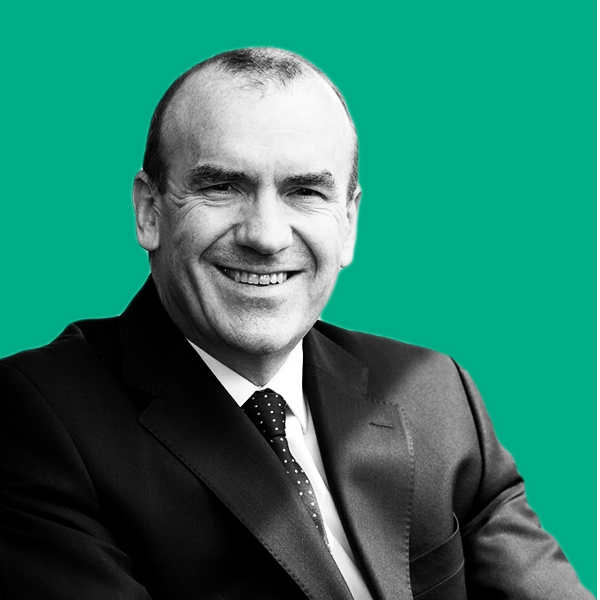
Sir Terry Leahy
Chair, Morrisons
Grocery veteran Sir Terry Leahy spent much of 2022 being the figurehead and spokesperson of CD&R’s takeover of Morrisons, sharing with the media his confidence in the supermarket’s recovery. Since the deal was completed he has taken more of a back seat, but his influence remains.
Navigating challenging trading under private ownership, in March Morrisons reported it had swung to a significant £1.5bn pre-tax loss in its first full year under CD&R’s ownership – its late response to the cost-of-living crisis saw consumers swap to cheaper alternatives.
However, Leahy and Morrisons have since invested heavily in price and expanded more heavily into convenience. The retailer completed its rescue acquisition of McColl’s in October 2022 after being given the green light from the Competition and Markets Authority, and in March this year opened the 500th Morrisons’ Daily c-store format. In July it became the first supermarket to stock entry-level products in convenience stores.
The work of Leahy, alongside chief executive David Potts, has begun to bear fruit. In the quarter to the end of January 2023, group revenue inched down by 0.9%, taking total sales to £4.5bn.

John Lyttle
Chief executive, Boohoo
The past 18 months have been a mixed bag for John Lyttle as boss of fashion etailer Boohoo. Following the frenzy of acquisitions and partnerships in 2021, Lyttle had switched his focus to address the inflationary pressures curtailing customer demand and driving up costs.
To draw shoppers back in, 80% of Boohoo’s new products were priced £25 or lower during the golden quarter.
Lyttle has also made some tough decisions to shake up Boohoo’s strategy. That includes investing in more nearshore sourcing, buying products in bulk, slashing marketing spend and reducing staffing at HQ, axing 100 jobs.
With total sales at the group slumping 10.8% to £1.77bn over the year to February 28, 2023, expect to see Lyttle make every effort to impress over the coming year. In February, he unveiled a new growth share plan, which will reward himself and chief financial officer Shaun McCabe a pot worth £175m between them if the business hits a £5bn market cap valuation. At the time of writing, capitalisation stood at £438.25m.
Lyttle will also be free of distractions, with Boohoo having finally come to a compromise agreement with Revolution Beauty in July following an ongoing war of words between the two retailers.

Stuart Machin
Chief executive,
Marks & Spencer
Chief executive Stuart Machin is at the centre of the high street icon’s long-awaited turnaround, alongside co-chief executive Katie Bickerstaffe. Having run M&S’ food business for almost four years before taking the top job in May 2022, Machin has been driving the roll-out of the new food-format store programme featuring market-style food halls and updated cafes.
Machin followed this up in January with the news that M&S is ploughing £500m into opening 20 “bigger and better stores”, with new digital services including click and collect at 130 stores and scan-and-shop services – creating 3,400 jobs in the process.
In the year to August 12, 2023, like-for-like food sales grew more than 11%, while clothing and home sales were up by more than 6%.
Machin is committed to ensuring store staff are supported too, overseeing a £57m investment in February to increase pay for shopfloor staff above the national minimum wage.
Machin’s strategy to power M&S’ high street revival hasn’t been without its challenges. In July, following a two-year process, Michael Gove rejected the retailer’s plans to redevelop its flagship Marble Arch store citing environmental impact. Highlighting the need for Oxford Street to be regenerated amid myriad store vacancies, Machin described the situation as “pathetic”. With Machin and the M&S team having appealed against the decision on August 31, the industry will be watching to see what happens next.
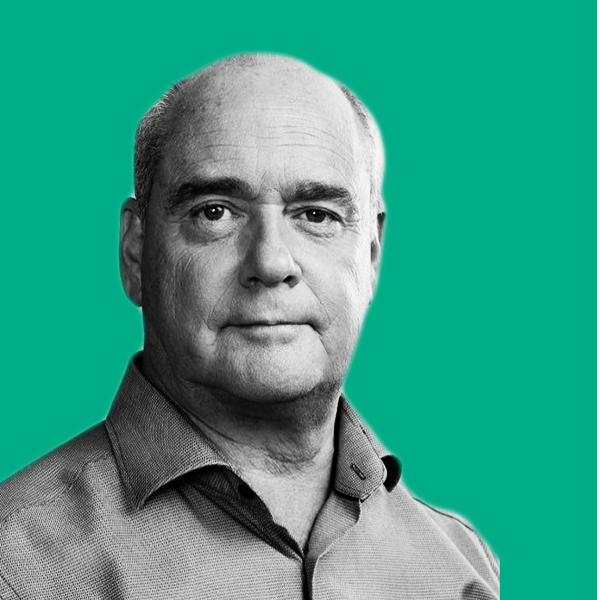
Trevor Masters
Chief executive, Pepco Group
Former Tesco executive Trevor Masters was elevated to the top job at Pepco Group in April 2022, having been with the group – which owns discount brands including Pepco, Poundland and Dealz – since 2019. He was handpicked by the board as the “outstanding candidate for the role”.
Under Masters, Pepco Group is pursuing a four-pillar strategy – 'bigger, better, cheaper and simpler' – which involves growing revenue, brand and market share, enhancing its store portfolio, driving cost efficiency and simplifying its offering. The ‘better’ element is evident in Masters’ acceleration of new store openings.
The Poundland business embarked on its “biggest store transformation project” in January this year, with 50 stores set to open, expand or relocate across the UK before the end of this month (September). For ‘cheaper,’ Masters has overseen parts of the business being moved to Poland, most recently the group’s buying and merchandising team following its listing on the Warsaw Stock Exchange in 2021.
Despite the inflationary environment, Masters is steering the business to growth and in the quarter to June 30, total group revenue was up 12.5% year on year on a constant currency basis to €1.3bn (£1.1bn). Pepco’s revenue rose 15.3% to €831m (£711m), while Poundland’s revenue increased 8.6% to €539m (£461m).

Ryan McDonnell
Chief executive,
Lidl GB
Ryan McDonnell may seem to have been keeping a relatively low profile since taking over from predecessor Christian Härtnagel in January this year, but quietly he has implemented a strategy that is taking discount giant Lidl from strength to strength.
In the Kantar market share data for August, Lidl GB maintained its July record market share of 7.7% with sales jumping 19.8%. McDonnell has stepped up the battle of the supermarkets after his retailer was handed victory by the High Court in April when it ruled Tesco's Clubcard logo infringed Lidl GB's store logo.
Elsewhere, McDonnell is prioritising sourcing. At the beginning of the year, the discounter pledged to spend £4bn with British suppliers this year alone, as part of its ongoing push to be the champion of national produce. McDonnell’s diligent work and continued focus on price has kept Lidl GB at the forefront of the consumer’s mind during this period of high inflation.
Its enduring focus on quality in a limited assortment means that even as consumer prices come down, Lidl GB is likely to maintain its appeal to millions of Britons for years to come.

Lyssa McGowan
Chief executive,
Pets at Home
The new top dog at Pets at Home Lyssa McGowan has been quick to shake up strategy, making several changes since taking the reins in June 2022.
McGowan has created a new consumer function, which will pull together the customer value proposition, digital and marketing teams, run by new chief consumer officer Kathryn Imrie. New chief operating officer of retail Lisa Miao will work with chief operating officer of the Vets For Pets business Louise Stonier and McGowan says the leadership changes mark a “step-change in our customer centricity”.
McGowan is streamlining distribution and fulfilment, with 25% of online sales now delivered from stores and a highly automated distribution facility on track to become operational by summer.
And McGowan’s work is driving ROI; total group revenue for the 16 weeks to July 20, 2023, were up 7.9% to £436.8m with like-for-like sales up 7.9%. McGowan has also grown Pets’ membership base, expanding its ‘VIP’ database by 4.4% to seven million.
With her leadership team in place and investments beginning to reap rewards, McGowan looks well placed to continue a positive trajectory.

Clodagh Moriarty
Retail and digital director, Sainsbury’s
Sainsbury’s has chosen to invest in price to ward off the discounters as part of its ongoing focus on providing value for its customers during the ongoing cost-of-living crisis.
Over the past 12 months, retail and digital director Clodagh Moriarty has helped cement the retailer’s presence in convenience, with Sainsbury’s Local sales hitting £3bn for the first time in March this year. This has been driven by the opening of 12 c-stores, with a further 20 planned for the following 12 months, as customer demand continues to grow. Under Moriarty’s tenure, new Local stores give customers the ability to click and collect purchases from Argos, Habitat and Tu Clothing.
She has also played a key role in the latest iteration of Sainsbury’s Nectar, unveiled in April. With more than 18 million Nectar members, Moriarty seized the opportunity to bring it more in line with competitor Tesco’s Clubcard Prices, offering lower prices on selected items in store or online.
Moriarty joined Sainsbury’s as head of strategy, was the chief digital officer and then took her current role in 2020. Her experience and her natural drive means that she will always see ways to innovate even when everything is ticking along well.

Tom Morris
Founder, Home Bargains
Home Bargains owner and reclusive billionaire Tom Morris is celebrated among the Retail 100 for another year as the value business he founded in 1976 continues to expand amid favourable conditions for discounters.
In January 2023, Morris snapped up fellow discount retailer Quality Save to support his goal to grow his business to 1,000 stores and 40,000 staff. It currently operates more than 500 stores and employs around 27,000. Morris intends to bring Quality Save stores under the Home Bargains fascia.
His business has not escaped controversy, however, as Home Bargains was one of the retailers that faced criticism in 2021 for refusing to pay back millions of pounds in rates relief handed out during the pandemic, despite it staying open as an essential retailer.
Its pre-tax profits for that period were up and the family owners are reportedly worth more than £5bn, however, the situation doesn’t seem to have done any lasting damage to its coffers. Home Bargains’ most recent set of accounts for the full year to June 2022 show the retailer achieved pre-tax profits of £293m and revenues of £3.4bn, up 2.4%.
This performance isn’t its strongest of the past five years, but the business is still expected to hit the £5bn revenue mark by 2026.

Michael Munnelly
President, TJX Europe
Michael Munnelly’s diligent performance as chief operating officer during the pandemic put him in pole position as a replacement for TJX Europe’s long-standing leader Louise Greenlees. Munnelly was appointed president last May when Greenlees stepped up to become group president.
Munnelly has been climbing the ranks of the discount fashion and homeware retailer since he joined from Tie Rack in 2000.
Although TJX’s UK business TK Maxx was battered during the pandemic, it is among the retailers that have bounced back as shoppers return to stores and is now positioned to capitalise on a heightened pursuit of value during the cost-of-living crisis. Overall UK sales rose 45.2% to £3.3bn for the year to the end of January 2022.
To maintain growth, Munnelly has turned his attention to store openings. At least four new branches are set to open in the UK this year and an extensive search for new – and potentially smaller-format – London sites is reportedly underway. International expansion is on the cards too – Munnelly is said to be pushing forward with new store locations in Europe.

Ken Murphy
Chief executive, Tesco
Having overseen Tesco’s pandemic pivot to rapidly scale up its ecommerce operations to meet growing lockdown demand, boss Ken Murphy has got the retailer to a stage where its value proposition is standing up to the discounters.
With the cost-of-living crisis dominating the agenda, Murphy’s relentless focus on price has filtered down through the entire organisation resulting in a resilient sales performance. In the year to February 2023, Tesco recorded a 5.3% increase in group sales year on year to £57.6bn, up from £54.7bn previously. Unlike other competitors such as Morrisons, Tesco has managed to fend off Aldi and Lidl to hold its market share in a highly inflationary environment.
Additionally, Murphy has used his platform as chief executive of the UK’s largest retailer to advocate on issues such as business rates, the apprenticeship levy and the government’s deposit return scheme.
Having this year trod the fine line between keeping prices low for consumers while mostly keeping suppliers and investors on side, Murphy has more than proven himself to be an able steward for Tesco in tough times.

Paula Nickolds
General merchandise and clothing commercial director, Sainsbury’s
Since joining Sainsbury’s to head its fashion and general merchandise businesses in May 2021, former John Lewis managing director Paula Nickolds is overseeing growth.
The highlight of her time at the retailer came at Christmas when general merchandise sales jumped 7.4% and clothing sales via Tu were up 5.1% for the 16 weeks to January 7. Sainsbury’s delivered the “best possible Christmas” and upgraded its full-year profit expectations in the process.
Chief executive Simon Roberts praised Nickolds for helping to fix the stock availability issues that plagued Argos the previous year and recognised her key role in integrating the wider non-food offering into Sainsbury’s supermarkets with click-and-collect points.
Nickolds has since maintained the grocer's general merchandise growth too. For the second quarter of 2023, the category grew 4% on a like-for-like basis; however, clothing has declined by 3.7%. While its market share of clothing and merchandise has grown, full-year results have painted a different picture with clothing declining by 3% and general merchandise down by 0.4% for the year to March 2023.
Nickolds is now working to turn the tables once more for the full year, and a focus on value and reducing costs is key to this.
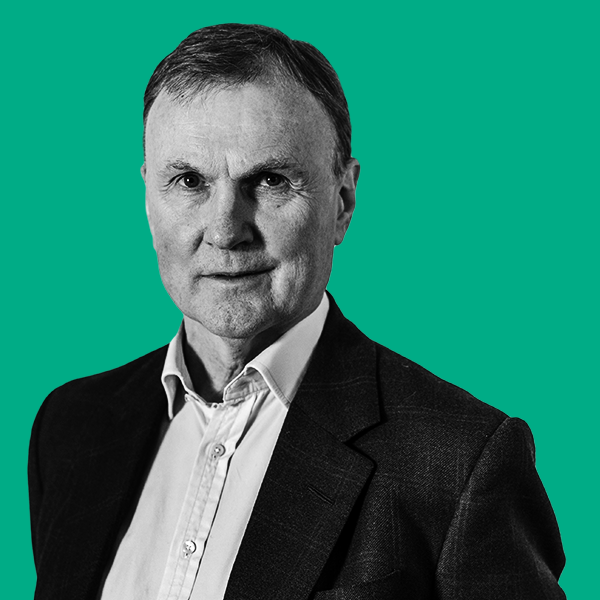
Archie Norman
Chair, Marks & Spencer
Marks & Spencer chair Archie Norman continues to be one of the UK retail’s most influential and respected names. Since taking one of the top jobs at the country’s most beloved high street names in 2017, Norman has become synonymous with making strategic – and at times unpopular – decisions.
However, M&S is now firmly back at the top of its game and is trading strongly despite the ongoing cost-of-living crisis. Overall sales increased 9.9% for the year ending April 1, 2023, with clothing and home sales up 11.5% to £3.72bn and food sales up 8.7% to £7.22bn. Store sales and online sales rose 14.9% and 4.8% respectively.
A trading update for the year to August 12, 2023, reported like-for-like clothing and home sales up by more than 6%, while food sales grew more than 11%.
Much of the praise for the turnaround should be directed towards the leadership team that Norman has overseen and encouraged to make change. Under chief executive Stuart Machin and co-chief executive Katie Bickerstaffe, M&S Food goes from strength to strength, while its once troublesome fashion arm is now also marching forwards.
Norman’s firm hand and wealth of experience has put M&S in the position where, according to 2023 Retail Week analyst forecasts, it will overtake its main rival John Lewis Partnership in sales by 2026.
Norman will likely remain a voice for the industry. In January, he branded the government’s Brexit plans for Northern Ireland “baffling”, urging the government to rethink packaging rules, while in June he criticised the government’s plans to bring in voluntary price caps on food, calling them “harebrained”.

David Potts
Chief executive, Morrisons
Morrisons is starting to find its feet just over a year after being bought by private equity firm CD&R, racking up £1.5bn in losses and being overtaken in the top four grocery ranking by discounter Aldi.
Chief executive David Potts has continued to make strategic changes designed to get the business back in the black. For the 13 weeks to April 30, 2023, Potts reported a continued increase in sales for the grocer with group like-for-like sales excluding fuel up 1% and total sales excluding fuel rising by 3.1% to £3.7bn.
Last October, Morrisons completed its purchase of struggling convenience store chain McColl's and Potts has been driving ahead with integrating its extensive estate of c-stores into Morrisons under its own Daily fascia. In March this year, Morrisons opened its 500th Daily convenience store – of which 350 are former McColl’s – and there are hundreds more in the works.
In the past few months, Potts has also been making it his mission to invest more in value for customers with large-scale price-cutting campaigns. As of August, Potts has overseen six rounds of price cuts in 2023, with the latest in June, totalling investment of £26m and cutting prices on 50 popular products by up to 25%.
With Potts thought likely to leave Morrisons in 2024, his successor has big shoes to fill.

José Antonio Ramos Calamonte
Chief executive, Asos
As the man tasked with fixing Asos, boss José Antonio Ramos Calamonte has been busy these past two years. After a challenging start, culminating in a swing into the red during the year to August 2022, Ramos Calamonte’s priority has been to set the fashion etailer up on his new ‘driving change’ turnaround strategy – a 12-month plan to sharpen Asos’ operating model, tighten stock management, improve company culture and speed up the time it takes to get new products to market. Ramos Calamonte has initiated shorter buying cycles and lead times, and moved more sourcing to nearshore so it can act faster on new trends.
He is also taking action to deal with overstock; partnering with Secret Sales in January and launching a sample sales website in July. The cost-cutting drive has forced him to make some difficult decisions at HQ, with more than 100 roles scrapped at its London office in October 2022.
Ramos Calamonte’s turnaround strategy is delivering; in its third quarter Asos hailed a return to profitability with adjusted EBIT “up more than £20m year on year” and “on track” to achieve guidance of between £40m and £60m in the second half. With talks of a potential takeover with a reported £1bn bid from Trendyol and Frasers upping its stake, the industry will be watching Ramos Calamonte closely as he continues to get the business back on track.

John Roberts
Founder and chief executive, AO.com
John Roberts has been front and centre of the appliance brand’s recent turnaround. As the cost-of-living crisis began to bite, customers turned away from buying white goods to save money for more essential items, resulting in AO reporting a 17.2% decline in sales in the third quarter of 2022. As the economic slowdown reverberated around the globe, it has put pressure on AO’s international business as well.
Roberts has acted quickly, scrapping its German arm in June 2022 to focus on the home business and focusing on profitability and cash generation.
The strategic changes had almost immediate effects and AO returned to profit in July 2023 with full-year profit before tax of £7.6m versus a loss of £10.5m the previous year, on sales down 17% to £1.14bn. This is despite the end of AO’s in-store concession partnership with Tesco in July 2022.
Now, with a strong balance sheet, Roberts has got AO back in business and looks set to keep momentum going in the months ahead.

Simon Roberts
Chief executive, Sainsbury’s
Simon Roberts’ term at the helm of Sainsbury’s has been mainly dominated by a relentless focus on getting the grocery giant back to focusing on food – and his strategy has been bearing fruit. Roberts has shown flexibility and adaptability, investing in price to keep Sainsbury’s competitive against rivals.
Roberts’ plan to effectively fold general merchandise business Argos into Sainsbury’s supermarkets has paid dividends too; for its second quarter 2023 Argos like-for-like sales grew 5.1%, while grocery sales were up 11% and general merchandise up 4%. Roberts has been investing to future-proof the business.
In March this year, the grocer spent £431.5m snapping up 21 supermarket freeholds to tap into the burgeoning post-pandemic customer return to stores. He has moved to spend heavily on automating warehouses and streamline Sainsbury’s third-party supply chains too, having announced a “radical overhaul” in April.
In another sign of its focus on value, Roberts unveiled changes in April to the grocer’s Nectar membership with its Prices scheme bringing it closer to Tesco’s Clubcard; while in May it rebranded its value range to Stamford Street, which Roberts has credited to recent growth.
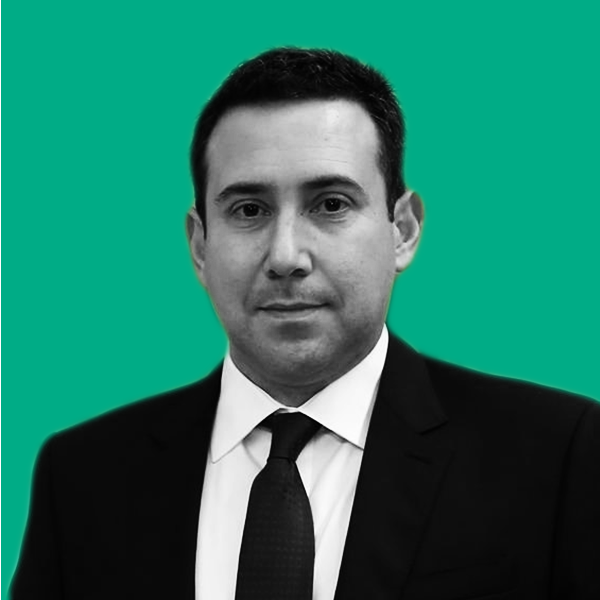
Alex Russo
Chief executive, B&M
Following his predecessor Simon Arora’s stellar 17-year stint as boss is no mean feat, but new B&M chief executive Alex Russo is more than up to the task. Russo has been at the variety discounter since October 2020, formerly as chief financial officer, and has key retail experience having been at Wilko for two years before that, and previously with Tesco and Walmart.
Having evolved into a £1.57bn operator, leading B&M has not all gone Russo’s way. Despite strong pre-trial demand, the furniture home-delivery service he launched in June 2022 was wound down in April 2023 after slow uptake. However, for the quarter to June 24, 2023, like-for-like sales rose 11.3% for the period to £1.07bn while revenue at its frozen foods chain Heron Foods grew by 19% to £135m.
Store expansion is at the top of Russo’s agenda, with the plan to occupy 950 stores in the UK, having reached 740 by March 2023. The acquisition of 51 Wilko stores in September, following the retailer’s collapse, will also support this. Having the infrastructure in place is crucial for Russo, too, and he is overseeing new warehouse management and voice-picking systems.
As the business battles against deteriorating margins, Russo represents a safe pair of hands for B&M.
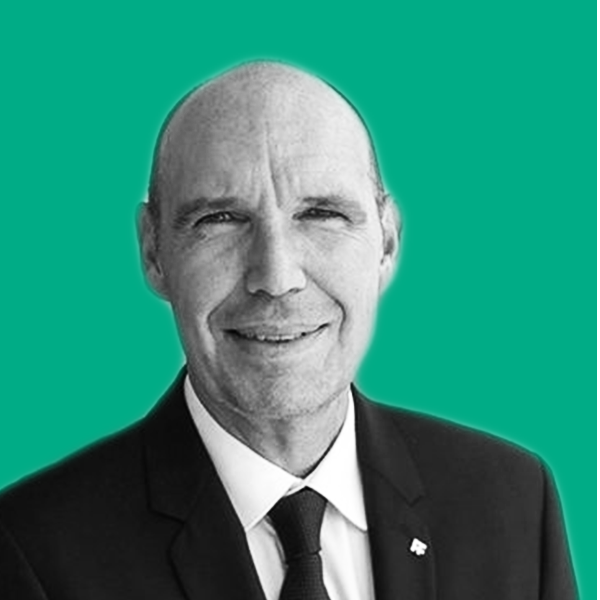
Régis Schultz
Chief executive, JD Sports
JD Sports has had a management shake-up and the board have placed their bets on new chief executive Régis Schultz, the former Al-Futtaim retail president and B&Q commercial director.
Having joined exactly a year ago, in September 2022, Schultz is not the only new appointment at JD. Ex chair Peter Cowgill left the business in May 2022 as the board sought to pursue a more conventional management structure and retail veteran and former Morrisons chair Andy Higginson has taken his place.
With the new leadership team came a strategic overhaul and Schultz has marked the new chapter by setting out an ambitious five-year growth plan. Schultz wants double-digit sales growth and revealed he would target between £500m-£600m per year of capital expenditure. Half or more of the investment will be focused on store expansion in underpenetrated markets, resulting in store-opening targets somewhere between 250 and 350 stores each year.
In July, for instance, Schultz signed JD’s first franchise deal to expand in the Middle East. Now, with the business set to deliver profits of £1.04bn, there are early signs that Schultz’s strategy is working.

Tim Steiner
Co-founder and chief executive, Ocado
Tim Steiner has had a strong year as the boss of online grocer turned tech platform provider Ocado, returning the business to profitability. For the 26 weeks to May 20, 2023, Ocado posted group EBITDA of £16.6m, up from a loss of £13.6m during the same period last year, while Ocado Retail posted a “small loss” of £2.5m during the first half despite EBITDA remaining positive throughout its second quarter. Ocado Retail’s revenue increased 5% year on year to reach £1.18bn for the period and group revenue climbed 8.6% to £1.37bn.
International expansion remains a focus. In November 2022, Ocado Solutions completed its 12th international tie-up – securing a deal with Korean giant Lotte Group – and Steiner says that 2023 will be the year that its international business reports its first ever profit.
After years of promising that global deals would come good, this is a profoundly important moment for Ocado and Steiner personally. Reaping the rewards of increased demand for supply chain automation, Steiner’s vision of Ocado becoming a truly international technology provider could be about to pay off. The coming months will be crucial.

Dame Sharon White
Chair, John Lewis Partnership
Into her fourth year as John Lewis Partnership chair, Dame Sharon White’s tenure will go down in history as one of the most eventful.
Having prompted some controversy over the past few years when White spearheaded John Lewis’ move away from physical retailing to focus more on its ecommerce arm, the Partnership has been impacted by the post-pandemic shift back to bricks and mortar. Total partnership sales fell 2.8% to £12.25bn in 2022 as muted sales performance across the department store operation could not offset reduced spend and falling sales across the Waitrose grocery division.
White has made bold decisions to arrest the slide. In March, she axed John Lewis’ famous staff bonus for the second time in three years and warned of fresh job cuts. That same month, White appointed the first ever chief executive of John Lewis in the retailer’s century-plus history – Nish Kankiwala. And White is not afraid to shake things up further to act “in the best interest of the partnership” – she has reportedly been looking into the prospect of outside investment, ending the brand’s 100% staff-ownership model.

Jo Whitfield
Chief executive, Matalan
After the best part of a year out of the retail limelight, former Co-op Food boss Jo Whitfield has taken the helm at struggling fashion retailer Matalan. It represents a reunion of sorts for Matalan and Whitfield, who was previously head of finance at the brand between 2002 and 2008. Whitfield beat a crowded field for the role, including then interim chief executive Nigel Oddy who stepped down in March.
The first task on Whitfield’s busy to-do list is driving Matalan’s turnaround. The retailer has been battling tough trading and racked up losses before income tax and exceptional items of £20.8m in its first half of 2022, and until recently it was the subject of an ownership battle between a group of investors led by Invesco and founder John Hargreaves. With the ownership question settled on Invesco and £100m of investment promised in January, Matalan’s future is looking all the brighter under Whitfield’s watch.
And staff should feel more settled, too – Whitfield was named Retail Activist at the 2022 Retail Week Awards for her work to change laws around shopworker safety, investment in talent, and for promoting greater diversity and inclusion.

Nick Wilkinson
Chief executive, Dunelm
Under Nick Wilkinson’s leadership, Dunelm’s sales are on the rise with the homeware retailer posting a 6% increase in total sales for the 52 weeks to July 1, 2023, up 50% on pre-pandemic levels. This is testament to Wilkinson’s positioning of the brand as an accessible, value retailer keeping hold of its prices during rampant inflation.
Wilkinson, who has led the business since 2018, has made huge progress in the digitisation of Dunelm with a £17m investment in its capability and capacity, and 10,000 new SKUs added to its online product range in 2022. Dunelm also now offers bookable consultations and live video chats with store staff, and has expanded into curtains and blinds following a deal in May 2022 to acquire supplier Sunflex for £20.8m.
While Wilkinson cautioned a “challenging broader consumer backdrop” in Dunelm’s latest results, he is playing the long game and investing in the future of the brand. Extended product ranges, building its customer database and marketing optimisation are on the cards – efforts that Dunelm expects will enable profits before tax for the full year to be slightly ahead of current analysts’ consensus of £188m.

Darcy Willson-Rymer
Chief executive,
Card Factory
Named one to watch in 2022, Darcy Willson-Rymer's work over the past year proves our journalists were right to bet on him. The former Costcutter boss has pursued an aggressive growth strategy aimed at shifting Card Factory from being product-led to customer-led.
Launched in FY2022, the ‘Opening Our New Future’ plan comprises digital transformation and CX investments – including the launch of its first UK-wide click-and-collect service in May – targeted price increases and international expansion.
The results are paying off; for the full year to January 31, 2023, Card Factory reported a leap in profits to £52.4m, up from £11.1m the previous year, and for the six months to July 31, 2023, reported performance “materially ahead” of management expectations.
Having opened its first Middle East store in July, Willson-Rymer is intent on making Card Factory the leading competitor globally. As Clintons mulls major store closures to avoid insolvency, Willson-Rymer is on track to achieve his goal – in the UK at least.

Lord Simon Wolfson
Chief executive, Next
Not one to let the grass grow under his feet, industry stalwart Lord Wolfson has packed a lot of action into the past year.
While some retailers have turned to simple cost-cutting, Wolfson has continued a programme of strategic stakebuilding, rescuing Made.com in November 2022, then Joules in December and Cath Kidston in March this year. It comes as Wolfson looks to potentially sell Reiss – in which Next holds a 51% stake – in a deal that would value Reiss at £500m.
Wolfson’s push into ecommerce services for third-party brands has also proved to be a winning growth opportunity. Although a fledgling business, Next Total Platform sales have more than doubled from the first half of 2022/23 to the second from £59.1m to £125.6m, and it is expected to bring in £22.5m in profit by next year. Wolfson’s focus on improving its core range, fulfilment and platforms has seen Next sail through challenges; Next posted a 6.9% jump in full-price sales in the second quarter, 0.5% ahead of guidance, and has increased its profit guidance by £10m to £845m.
While cautious on prospective growth, Wolfson believes that at present Next has “far more ideas and opportunities for long-term growth than it has had for some time”.

Peter Wood,
Chief executive,
AllSaints
AllSaints boss Peter Wood is recognised in the Retail 100 for the first time after a year of bringing the fashion retailer back on track with record results.
For the year to January 28, 2023, AllSaints posted its best-ever annual sales and profits with a 36% increase in total sales to £457m and operating profit more than doubling to £28.5m from £10.1m the previous year, while pre-operating exceptional EBITDA rose 50% to £58.6m.
Wood sees a huge opportunity for development across Asia, particularly in travel centres to get the brand in front of affluent tourists, and it now has more than 20 outlets in South Korea and 15 stores in Taiwan. Wood has also overseen AllSaints’ first store in Mainland China and unveiled a new store design in Los Angeles since the year end.
The retailer is making moves to establish itself as a lifestyle brand under Wood’s leadership, too. A licensing initiative saw the business break ground in new categories such as fragrance and watches, and sales from its wholesale, franchise and licensing division jumped 59% to a record £45m in 2022.
Wood is also ensuring AllSaints makes progress on its ESG commitments and has said that 66% of its spring 2022 collection was certified sustainable, while in its wider supply chain it has improved product and packaging sustainability along with ethical trading, and reduced carbon emissions.

